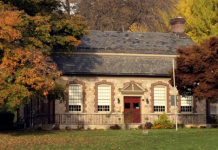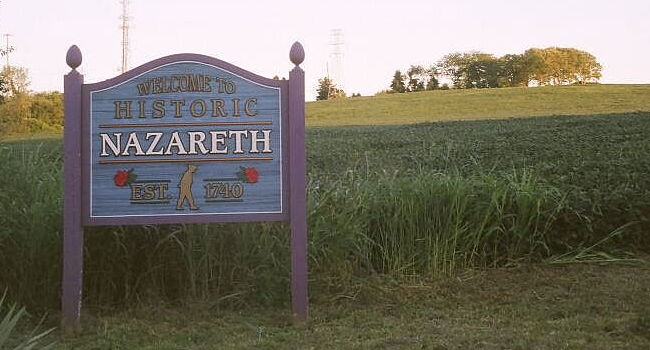A few months ago, I wrote a series on Austrian immigrants who came to America for opportunity and a new life in a new country. Another large migration from the old Austria-Hungarian empire were people of Slovak origin. Many settled in Northampton, Cementon, Egypt, Coplay and Catasauqua.
My mother, a Slovak, also made the long journey to the United States and settled in Northampton. She was very proud of her heritage. I wonder how many of their descendants can converse in their native tongue.
Their heritage and determination helped organize a number of local churches — in Northampton, both the Assumption Virgin Mary and Holy Trinity Slovak Evangelical churches; in Catasauqua, St. Andrew’s Slovak Catholic Church, now named St. John Fisher; and in Egypt, Holy Trinity Roman Catholic Church.
St. Andrew’s was the first to be formed, in 1902. As a result, my mother walked to St. Andrew’s to worship on Sundays. The other churches were formed at a later date.
One of my friends, Rev. Jerry Mraz, was the longtime pastor of Holy Trinity Slovak Church in Northampton. Born in Czechoslovakia, he is an authority on Slovak culture. So I sharpened my No. 2 Farber pencil and interviewed him. Guess my questioning sounded like an interrogation.
His parents were born in Austria Hungary. After World War I, as a result of President Wilson’s 14-point statement after the war, Czechoslovakia was created. The country was transformed from a monarchy to a democratic republic.
They lived in a town named Partizanska Lupca. The community was primarily agricultural. The family lived on a farm, and his father, Adam, made wooden containers for cheese products. His aunt operated a dairy, which processed milk from the area. Jaroslav Mraz (Spring Glory-Frost) was born on April 16, 1933.
Their uncle owned a dry-cleaning store in New York City and needed help. His uncle forwarded a paid ticket for Adam’s trip to the United States. The year was 1937. Fateful days awaited the people of their new country. Nazi Germany was on the march in 1938. Czechoslovakia’s future would be decided at the Munich Conference by Germany, Italy, France and Great Britain. Soon, its freedom would be lost. I am sure Mr. Mraz considered these circumstances when he left for America, leaving wife Ludmila and son Jaroslav at home.
When Adam arrived in New York, he lived in the back room of the cleaning shop while working to pay his ship ticket and attempting to save enough money to bring his wife and son to America.
Working long hours, he was able to save enough money to bring his son and wife to New York — the year, 1939. Ellis Island was no longer in operation. One had to have a sponsor and go through processing at the New York Customs House. There were strict procedures that had to be followed.
They came to New York in steerage on the German passenger ship Europa.
Jerry recalled, “The journey was quite an experience for a 6-year-old. As a youth, we never left our community. I was anxious and exited to see and live in America.”








